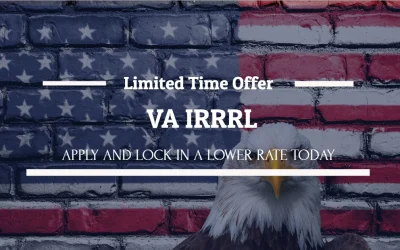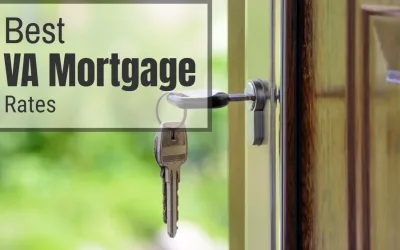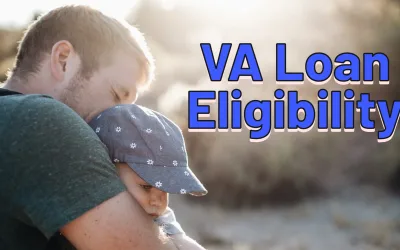The VA home loan program is a valuable benefit offered to veterans and active-duty military personnel. It provides an opportunity for these individuals to become homeowners with favorable terms and conditions. One of the main advantages of a VA loan is that it does not require a down payment, making it easier for veterans to achieve the dream of homeownership. Additionally, VA loans often have lower interest rates compared to conventional mortgages, resulting in significant savings over the life of the loan.
Another benefit of a VA home loan is that it does not require private mortgage insurance (PMI). PMI is typically required for conventional loans with a down payment of less than 20%. By eliminating this additional cost, VA loans can save borrowers hundreds of dollars each month. Furthermore, VA loans offer flexible credit requirements, making it easier for veterans with less-than-perfect credit scores to qualify for financing.
Key Takeaways
- VA loans are available to active duty service members, veterans, and eligible surviving spouses.
- To apply for a VA loan, you’ll need to gather necessary documents such as proof of income and service records.
- Preparing your finances is important to get your credit and debt in order before applying for a VA loan.
- Choosing the right mortgage broker is crucial to finding the best VA loan provider for your needs.
- Understanding the VA appraisal process and what to expect at the closing table can help you make the most of your VA home loan benefit.
Understanding VA Loans: What They Are and Who Qualifies
VA loans are mortgage loans guaranteed by the U.S. Department of Veterans Affairs (VA). They are designed to help veterans, active-duty service members, and eligible surviving spouses become homeowners. To qualify for a VA loan, individuals must meet certain eligibility criteria, including serving a minimum period of active duty or being a veteran who was honorably discharged.
One key aspect of VA loans is that they are provided by private lenders, such as banks and mortgage companies, but are guaranteed by the VA. This guarantee protects lenders against loss if the borrower defaults on the loan. As a result, lenders are more willing to offer favorable terms and conditions to borrowers.
Gathering the Necessary Documents: What You’ll Need to Apply for a VA Loan
When applying for a VA loan, it is important to gather all the necessary documents to streamline the process. The required documents may vary slightly depending on the lender, but generally include proof of military service, income verification, and credit information.
Proof of military service can be obtained through a Certificate of Eligibility (COE) issued by the VA. This document confirms the individual’s eligibility for a VA loan. To obtain a COE, the lender may be able to pull a copy from the VA Portal or the veteran may have to provide proof of service is it is not initially available.
Income verification is crucial for lenders to assess the borrower’s ability to repay the loan. This can be done through recent pay stubs, W-2 forms, and tax returns. Depending on the company the veteran works for, the lender may be able to access this information digitally without the borrower uploading any documents. Lenders may also require bank statements to verify the availability of funds for closing costs and reserves.
Credit information is essential for lenders to evaluate the borrower’s creditworthiness. This includes obtaining a credit report from one or more credit bureaus. It is important for borrowers to review their credit reports beforehand to identify any errors or discrepancies that could affect their loan application.
Preparing Your Finances: How to Get Your Credit and Debt in Order
| Topic | Metric |
|---|---|
| Credit Score | Range from 300 to 850 |
| Credit Report | Includes personal information, credit accounts, payment history, and public records |
| Debt-to-Income Ratio | Percentage of monthly income that goes towards debt payments |
| Credit Utilization | Percentage of available credit being used |
| Payment History | Record of on-time and late payments |
| Credit Counseling | Service that helps individuals manage debt and improve credit |
Before applying for a VA loan, it is crucial to prepare your finances to increase your chances of approval and secure favorable terms. One important step is to review your credit report and address any issues that may negatively impact your credit score. This can include paying off outstanding debts, disputing inaccuracies, and establishing a history of on-time payments.
Reducing your debt-to-income ratio is another important aspect of preparing your finances. Lenders typically prefer borrowers with a lower debt-to-income ratio, as it indicates a lower risk of default. To improve this ratio, consider paying off high-interest debts or consolidating them into a single loan with more favorable terms.
Saving for a down payment and closing costs is also essential when preparing your finances for a VA loan. While VA loans do not require a down payment, having some savings can provide additional flexibility and help cover other expenses associated with homeownership.
Finally, it is important to establish a budget and stick to it. This will not only help you manage your finances effectively but also demonstrate to lenders that you are financially responsible and capable of repaying the loan.
Finding a Mortgage Broker: Tips for Choosing the Right VA Loan Provider
Finding the right mortgage broker is crucial when applying for a VA loan. A mortgage broker acts as an intermediary between borrowers and lenders, helping borrowers find the best loan options and guiding them through the application process. Here are some tips for choosing the right VA loan provider:
1. Research and compare: Take the time to research different mortgage brokers and compare their offerings. Look for brokers with experience in VA loans and a good reputation in the industry.
2. Check credentials: Ensure that the mortgage broker is licensed and registered with the appropriate regulatory bodies. This will give you peace of mind as they adhere to industry standards and regulations.
3. Evaluate customer service: Pay attention to how responsive and helpful the mortgage broker is during your initial interactions. Good communication and customer service are essential throughout the loan process.
4. Compare rates and fees: Keep an eye out for extra lender fees. At Capital City Mortgage, we don’t charge underwriting, processing, or origination fees. Typically, the only lender fee we charge would be a discount fee, if it is beneficial to our client’s individual situation.
Getting Pre-Approved: The Importance of Knowing Your Budget
After applying for a VA loan, the next step is getting pre-approved. A lender’s pre-approval involves a thorough assessment of your financial situation by a lender. Here’s why getting pre-approved is crucial:
1. Know your budget: Pre-approval gives you a clear understanding of how much you can afford to spend on a home. This helps you narrow down your search and focus on properties within your price range.
2. Strengthen your offer: Sellers often prioritize offers from pre-approved buyers, as it demonstrates their ability to secure financing. This can give you a competitive edge in a competitive housing market. We encourage our clients to take the next step and get full underwritten approval. This puts you above the vast majority of potential home buyers out there.
3. Save time and effort: By getting pre-approved, you can avoid wasting time and effort on homes that are outside your budget and focus on properties that are more likely to meet your financing needs.
4. Identify potential issues: During pre-approval, the lender will review your financial documents and credit history. This can help identify any possible problems that may affect your loan application. By addressing these issues early on, you can increase your chances of approval.
5. Streamline the closing process: Pre-approval expedites the loan process once you find a home. Since much of the paperwork and verification has already been completed, closing can be smoother and faster.
Shopping for a Home: What to Look for and How to Make an Offer
Once you are pre-approved for a VA loan, it’s time to start shopping for a home. This is an exciting but crucial stage in the homebuying process. Here are some tips on what to look for and how to make an offer:
1. Define your priorities: Before starting your search, make a list of your must-haves and nice-to-haves in a home. This will help you narrow down your options and focus on properties that meet your criteria.
2. Work with a real estate agent: A knowledgeable real estate agent can guide you through the homebuying process, help you find suitable properties, and negotiate on your behalf. Look for an agent with experience in working with VA buyers.
3. Attend open houses and viewings: Take the time to visit properties in person to get a better sense of their condition, layout, and neighborhood. Don’t be afraid to ask questions and take notes during your visits.
4. Make a competitive offer: When making an offer, consider the current market conditions, the property’s value, and your budget. Your real estate agent can help you structure a competitive offer that stands out to the seller.
The VA Appraisal Process: What You Need to Know
The VA appraisal process is an important step in obtaining a VA loan. It involves an assessment of the property’s value and condition by a VA-approved appraiser. Here’s what you need to know about the VA appraisal process:
1. Objective assessment: The VA appraisal aims to determine the fair market value of the property and ensure it meets the VA’s minimum property requirements (MPRs). The appraiser will evaluate factors such as the property’s size, condition, location, and comparable sales in the area.
2. Protecting the borrower: The VA appraisal is designed to protect the borrower from purchasing a property that is overpriced or in poor condition. It ensures that veterans are making a sound investment and not overpaying for their homes.
3. MPRs: The VA has specific MPRs that must be met for a property to be eligible for financing. These requirements include adequate heating, plumbing, electrical systems, and structural integrity. The appraiser will assess whether the property meets these standards.
4. Potential issues: If the appraiser identifies any issues that do not meet the MPRs, they will note them in the appraisal report. These issues may need to be addressed before the loan can be approved or closed.
5. Reconsideration of value: If the appraised value of the property is lower than the agreed-upon purchase price, the buyer and seller may need to renegotiate the terms of the contract. The lender will typically base the loan amount on the appraised value.
Closing the Loan: What to Expect at the Closing Table
Closing a VA loan involves signing the necessary paperwork and finalizing the purchase of your home. Here’s what you can expect at the closing table:
1. Reviewing documents: The closing process typically involves reviewing and signing various documents, including the loan estimate, closing disclosure, promissory note, and deed of trust. It is important to carefully review these documents and ask any questions you may have.
2. Paying closing costs: At closing, you will be required to pay closing costs, which can include fees for appraisal, title search, attorney services, and loan origination. These costs can vary depending on the lender and location.
3. Funding the loan: Once all the necessary documents are signed and funds are collected, the lender will fund the loan. This means that they will transfer the agreed-upon loan amount to the seller or their representative.
4. Receiving keys and ownership: After funding, you will receive the keys to your new home and officially become a homeowner. Congratulations!
Refinancing Your VA Loan: When and How to Consider a Refi
Refinancing a VA loan can be a smart financial move under certain circumstances. Here’s when and how to consider refinancing your VA loan:
1. Lower interest rates: If interest rates have significantly dropped since you obtained your VA loan, refinancing can help you secure a lower rate and potentially save money on your monthly mortgage payments.
2. Cash-out refinance: A cash-out refinance allows you to tap into your home’s equity by refinancing for a higher loan amount than what you currently owe. This can be useful for consolidating debt, making home improvements, or covering other expenses.
3. Streamline refinance: The VA offers a streamline refinance program, also known as the Interest Rate Reduction Refinance Loan (IRRRL). This program allows eligible borrowers to refinance their existing VA loan with minimal documentation and paperwork.
4. Extending or shortening the loan term: Refinancing can also be an opportunity to extend or shorten the loan term. For example, if you want to reduce your monthly payments, you can refinance to a longer-term loan. Conversely, if you want to pay off your mortgage faster, you can refinance to a shorter-term loan.
5. Consult with your mortgage broker: Before deciding to refinance, it is important to consult with a mortgage professional who can assess your specific situation and provide guidance on whether refinancing is the right option for you.
Troubleshooting Common Issues: How to Overcome Hurdles in the VA Loan Process
While the VA loan process is generally smooth and straightforward, there can be hurdles along the way. Here are some common issues that borrowers may encounter and how to overcome them:
1. Credit issues: If you have credit issues, such as a low credit score or past delinquencies, it may affect your ability to qualify for a VA loan. To overcome this hurdle, work on improving your credit by paying bills on time, reducing debt, and disputing any errors on your credit report.
2. Property condition: If the property does not meet the VA’s minimum property requirements (MPRs), it may pose challenges in obtaining financing. In such cases, you may need to negotiate repairs with the seller or consider alternative financing options.
3. Appraisal value: If the appraised value of the property is lower than the agreed-upon purchase price, it can complicate the loan process. You may need to renegotiate with the seller or come up with additional funds to cover the difference.
4. Documentation requirements: The VA loan process requires extensive documentation, and missing or incomplete paperwork can cause delays. To avoid this issue, ensure that you have all the necessary documents ready and provide them promptly to your lender.
5. Communication breakdown: One of the biggest complaints we receive about other lenders is poor communication. At Capital City Mortgage, we pride ourselves on our proactive communication. We allow our clients and partners to wonder what is going on. We take the step to make sure everyone involved with the loan is up-to-date.
Make the Most of Your VA Home Loan Benefit
In conclusion, a VA home loan is a valuable benefit that can help veterans and active-duty military personnel achieve the dream of homeownership. By understanding the benefits of a VA loan, gathering the necessary documents, preparing your finances, and finding the right mortgage broker, you can navigate the loan process with confidence.
Getting pre-approved, shopping for a home, and understanding the VA appraisal process are essential steps in securing a VA loan. By being proactive and knowledgeable throughout the process, you can increase your chances of approval and make informed decisions.
Finally, consider refinancing your VA loan when it makes financial sense. Refinancing can help you take advantage of lower interest rates, access your home’s equity, or adjust your loan term to better suit your needs.
When you are ready to begin applying for a va loan, click the green button above to get an analysis from Capital City Mortgage.
VA IRRRL – Beat the market
Mortgage Rate Drop - 5.125% (5.291% APR)30-Year Fixed VA IRRRL720 Credit Score$300,000 Loan AmountAttention VA Loan Borrowers Are you currently paying an interest rate above 6.75% on your VA loan? If so, we have an incredible opportunity for you to lower your rate and...
Unlocking the Best VA Mortgage Rates
VA mortgages are home loans specifically designed for military members and veterans. These mortgages offer a range of benefits that make homeownership more accessible and affordable for those who have served in the armed forces. We will cover the role of credit scores...
Understanding VA Loan Eligibility
Verifying VA loan eligibility is a key step in qualifying for a VA mortgage. VA loans, or Veterans Affairs loans, are mortgage loans guaranteed by the U.S. Department of Veterans Affairs. They are available to eligible veterans, active duty service members, and...





